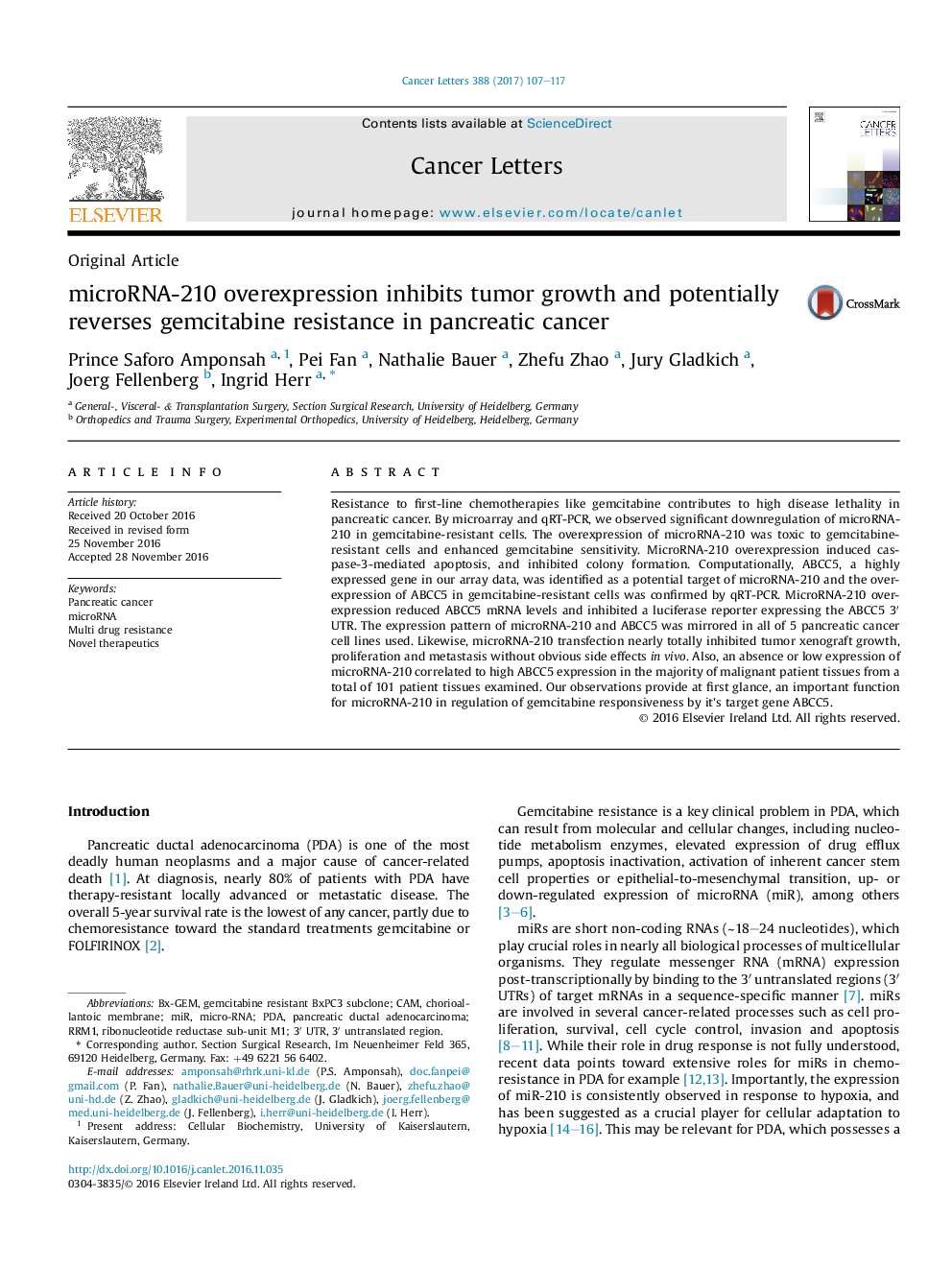| Article ID | Journal | Published Year | Pages | File Type |
|---|---|---|---|---|
| 5525679 | Cancer Letters | 2017 | 11 Pages |
â¢We identified miR-210 as a direct suppressor of the multidrug efflux transporter ABCC5.â¢We found a reduced expression of miR-210 in malignant patient tissue along with enhanced ABCC5 expression.â¢The administration of miR-210 mimics reduced tumor growth and metastasis of xenografts without side effects.â¢This is the first pre-clinical study reporting that miR-210 in pancreatic cancer could increase the therapeutic efficacy.
Resistance to first-line chemotherapies like gemcitabine contributes to high disease lethality in pancreatic cancer. By microarray and qRT-PCR, we observed significant downregulation of microRNA-210 in gemcitabine-resistant cells. The overexpression of microRNA-210 was toxic to gemcitabine-resistant cells and enhanced gemcitabine sensitivity. MicroRNA-210 overexpression induced caspase-3-mediated apoptosis, and inhibited colony formation. Computationally, ABCC5, a highly expressed gene in our array data, was identified as a potential target of microRNA-210 and the overexpression of ABCC5 in gemcitabine-resistant cells was confirmed by qRT-PCR. MicroRNA-210 overexpression reduced ABCC5 mRNA levels and inhibited a luciferase reporter expressing the ABCC5 3ⲠUTR. The expression pattern of microRNA-210 and ABCC5 was mirrored in all of 5 pancreatic cancer cell lines used. Likewise, microRNA-210 transfection nearly totally inhibited tumor xenograft growth, proliferation and metastasis without obvious side effects in vivo. Also, an absence or low expression of microRNA-210 correlated to high ABCC5 expression in the majority of malignant patient tissues from a total of 101 patient tissues examined. Our observations provide at first glance, an important function for microRNA-210 in regulation of gemcitabine responsiveness by it's target gene ABCC5.
